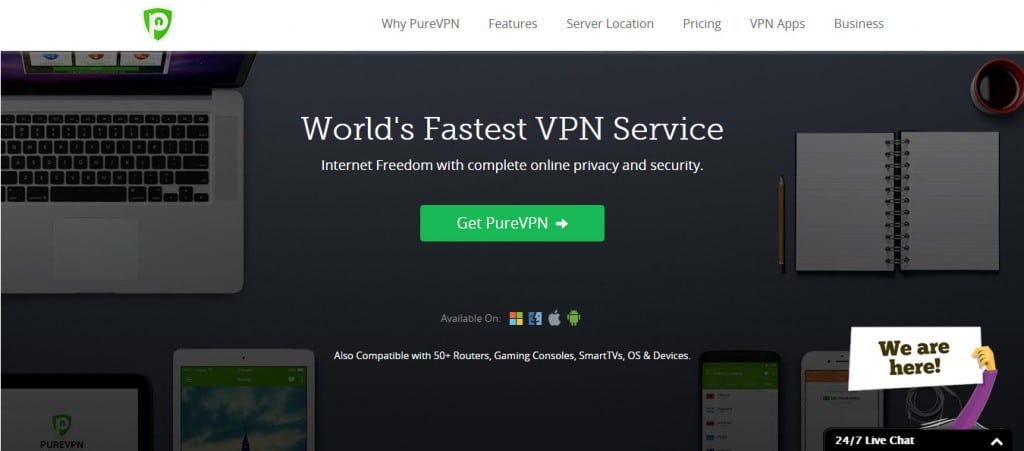
VPNs are an excellent tool to access the Internet securely and without restrictions. Currently, using a VPN is the best way to get around the Great Firewall of China and be able to access all of the blocked apps in the country.
However, how can you objectively assess the performance of your VPN? In this article, we explain how to use an Internet speed test to evaluate the quality of your Internet connection and the functionality of your VPN. Also, here you can find some tips to improve your VPN speed.
Speed test
Below is a tool designed by Bing that you can use for free to test your Internet connection speed (simply click on Start):
How to evaluate the speed test
Normally, speed tests provide three results: ping, download speed, and upload speed. Below, we will explain what this information is used for.
Ping or connection latency
Ping or connection latency is the response time. In other words, it’s the time that elapses between when you ask for a piece of data and when you get the answer. Ping is calculated in milliseconds (ms).
This factor is important to be able to browse quickly and is very important for online gaming. Ideal pings are around 50 ms.
For normal browsing, a ping of under 250 ms is usually enough. If the ping is between 500 and 1000 ms, it’s very likely that browsing will become somewhat frustrating.
For gamers, the ideal ping is under 20 ms, although with values of between 20 and 60 ms, you will only barely notice the lag. From 100 ms onwards, the ability to play starts to be affected, and values of greater than 250 ms are incompatible with the majority of games.
Download speed
Download speed is the speed at which you receive information from the Internet. It’s calculated in megabits per second (Mbps).
Download speed is essential for streaming (viewing videos or listening to music directly on the Internet without downloading it beforehand), and doesn’t tend to be a limiting factor when it comes to browsing websites.
For normal Internet browsing (doing searches and reading content), values above 0.5 Mbps (or 512 Kbps) tend to be enough, but it’s also possible to browse (with a bit of patience) with values of around 256 Kbps. Values below 256 Kbps tend to make browsing an exercise in patience.
For streaming, it’s ideal to have values of above 5 Mbps. For example, Netflix requires a minimum of 0.5 Mbps, and recommends 1.5 Mbps as a minimum. below, I give the details of the speeds necessary for different types of streaming:
- Streaming SD music (for example MP3) and video: Between 0.5 and 1.5 Mbps
- Streaming HD video (720p): Between 1.5 Mbps and 5 Mbps
- Streaming Full HD video (1080p): Between 5 Mbps and 15 Mbps
- Streaming 4K or Ultra HD video: More than 20 Mbps
Upload Speed
Upload speed is the speed at which you upload information to the Internet. It’s also calculated in megabits per second (Mbps).
In general, in our experience, it’s the parameter that has the least effect on using the Internet, although it’s important for video conferences or uploading files to the Internet.
In principle, values of around 5 Mbps are more than enough, although the majority of people don’t need more than 0.5 Mbps (what Skype recommends for high-quality video conferences).
Important: To evaluate your connection speed when you’re on a Wi-Fi network, make sure you’re in an area with a good signal. In other words, it’s important to do the test as close to the router as possible to prevent distortions due to the quality of the Wi-Fi signal.
How to evaluate the performance of your VPN
The performance of a VPN can vary depending on multiple factors:
- Distance from the server: The more distance there is between the server you are connecting to and the place from which you’re accessing the Internet, the slower the connection will be, especially in terms of ping. If you’re connecting to a server located in Latin America from China, don’t expect a good speed, and even less so a fast ping.
- Server quality: This is undoubtedly the most important factor. The quality of a server is what will greatly determine the connection speed via your VPN. To make things cheaper, many VPNs use low-quality rented servers, and this has a large impact on their speed.
- Server use: The majority of VPNs offer connections to servers that are shared by multiple users. The more users that are connected to the server, the poorer the connection quality will be. Try to avoid using very popular servers.
- Encryption: One of the features of VPNs is that they encrypt your Internet use to increase security and hide your IP address. The more robust the encryption, the slower the connection. For example, connecting via the OpenVPN protocol (robust encryption) will be slower than using the PPTP protocol (weak encryption).
Taking these factors into account, evaluating the performance of your VPN is very easy:
- Choose a server close to where you are connecting to get low ping values. Many VPNs offer a test to evaluate which server gives you the fastest ping. Try to choose a server with a ping under 100 ms.
- Do the speed test without the VPN and write down the data.
- Connect the VPN to the server chosen and do the speed test again.
- Compare the results.
Normally, the VPN will somewhat affect the ping, although if you choose a nearby server, it shouldn’t be over 50 ms (150 ms in countries like China).
In terms of the download and upload speed, the test with the VPN shouldn’t have values that are very different from the test without the VPN, and sometimes can even have higher values, especially if you use weak encryption.
If there’s a big difference between the speeds with and without the VPN, that could mean that the VPN that you’ve chosen might not be the best option.
Last of all, while speed tests are very useful to give you an idea of your connection quality, sometimes they can be deceiving, especially if the connection isn’t very good. Keep in mind that Internet speeds can fluctuate and lead to errors, because of which I recommend doing the test multiple times before drawing conclusions.
Frequently asked questions
With such a tool, you can test the download speed and the upload speed of your VPN. You can also find out the response time of your connection (or ping), which is calculated in milliseconds.
So, if you are browsing Chinese websites, you might want to switch off your VPN to increase the speed of your internet connection
However, if you are based in China and you want to browse websites that are hosted outside of China, you might see the opposite effect, i.e. a faster download (and upload) speed.
Choose a “simple” protocol, for instance, OpenVPN. It might not be the most secure, but it’s certainly faster.
Test the servers offered by your VPN: Every serious VPN offers a wide range of servers. Generally speaking, the closer the server is to your location, the faster your VPN will work. Therefore, if you are in China, you might consider servers in Hong Kong, Singapore, or Japan.
Photo Credits: Photo by Gerd Altmann on Pixabay



